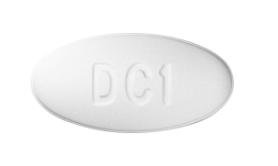Qinlock Side Effects
Generic name: ripretinib
Medically reviewed by Drugs.com. Last updated on Jul 14, 2024.
Note: This document provides detailed information about Qinlock Side Effects associated with ripretinib. Some dosage forms listed on this page may not apply specifically to the brand name Qinlock.
Applies to ripretinib: oral tablet.
Serious side effects of Qinlock
Along with its needed effects, ripretinib (the active ingredient contained in Qinlock) may cause some unwanted effects. Although not all of these side effects may occur, if they do occur they may need medical attention.
Check with your doctor immediately if any of the following side effects occur while taking ripretinib:
More common side effects
- blistering, peeling, loosening of the skin
- bloating or swelling of the face, arms, hands, lower legs, or feet
- blurred vision
- chest tightness
- constipation
- diarrhea
- difficult or labored breathing
- dizziness
- headache
- nausea or vomiting
- nervousness
- pounding in the ears
- rash, redness, swelling, pain, or ulceration of the skin
- scaling of the skin on the hands and feet
- slow or fast heartbeat
- stomach pain
- tingling of the hands or feet
- unusual weight gain or loss
Less common side effects
- change in size, shape, or color of existing mole
- chest pain or discomfort
- decreased urine output
- dilated neck veins
- irregular breathing
- irregular heartbeat
- mole that leaks fluid or bleeds
- new mole
- pale skin
- trouble breathing
- unusual bleeding or bruising
- unusual tiredness or weakness
Rare side effects
- increased sensitivity of the skin to sunlight
- redness or other discoloration of the skin
- severe sunburn
Other side effects of Qinlock
Some side effects of ripretinib may occur that usually do not need medical attention. These side effects may go away during treatment as your body adjusts to the medicine. Also, your health care professional may be able to tell you about ways to prevent or reduce some of these side effects.
Check with your health care professional if any of the following side effects continue or are bothersome or if you have any questions about them:
More common side effects
- difficulty in moving
- dry or itching skin
- joint pain or swelling
- lack or loss of strength
- loss of appetite
- loss or thinning of the hair
- muscle pains or stiffness
- swelling or inflammation of the mouth
For healthcare professionals
Applies to ripretinib: oral tablet.
General adverse events
The most common adverse reactions are alopecia, fatigue, nausea, abdominal pain, constipation, myalgia, diarrhea, decreased appetite, palmar-plantar erythrodysesthesia syndrome (PPES), and vomiting.[Ref]
Cardiovascular
- Very common (10% or more): Hypertension (up to 19.4%)
- Common (1% to 10%): Cardiac dysfunction (e.g., cardiac failure, acute left ventricular failure, diastolic dysfunction, ventricular hypertrophy), cardiac ischemic events (including acute coronary syndrome and fatal cardiac arrest or myocardial infarction)[Ref]
Dermatologic
- Very common (10% or more): Alopecia (up to 52%), palmar-plantar erythrodysesthesia syndrome (PPES) (up to 29.8%), dry skin (up to 17%), pruritus (11%)
- Common (1% to 10%): Photosensitivity
- Frequency not reported: Dermatosis[Ref]
Gastrointestinal
- Very common (10% or more): Nausea (39%), abdominal pain (36%), constipation (34%), lipase increased (32%), diarrhea (28%), vomiting (21%), serum amylase increased (13%), stomatitis (11%)[Ref]
Hematologic
- Common (1% to 10%): Anemia (3.5%)[Ref]
Hepatic
- Very common (10% or more): Increased bilirubin (22%), increased alanine aminotransferase (ALT) (12%)[Ref]
Metabolic
- Very common (10% or more): Decreased appetite (27%)[Ref]
Musculoskeletal
- Very common (10% or more): Myalgia (up to 37.8%), arthralgia (up to 21.2%), muscle spasms (15%)
- Frequency not reported: Arthritis[Ref]
Nervous system
- Very common (10% or more): Headache (up to 20.7%)
- Frequency not reported: Hyperesthesia[Ref]
Oncologic
- Common (1% to 10%): Cutaneous squamous cell carcinoma, keratoacanthoma, melanoma[Ref]
Other
- Very common (10% or more): Fatigue (up to 51%), increased creatine phosphokinase (CPK) (21%), peripheral edema (up to 17%), asthenia (13%), increased triglycerides (26%), decreased phosphate (26%), decreased calcium (23%), weight loss (up to 26.5%), decreased sodium (17%), increased activated partial thromboplastin time (35%), increased international normalized ration (INR) (21%), decreased neutrophil count (10%), increased lipase (up to 32%), increased serum amylase (13%)
- Common (1% to 10%): Physical health deterioration[Ref]
Psychiatric
- Frequency not reported: Agitation[Ref]
Renal
- Very common (10% or more): Increased creatinine (16%)[Ref]
Respiratory
References
1. (2023) "Product Information. Qinlock (ripretinib)." Deciphera Pharmaceuticals (Netherlands) B.V.
2. (2022) "Product Information. Qinlock (ripretinib)." Specialised Therapeutics Australia Pty Ltd
3. (2023) "Product Information. Qinlock (ripretinib)." Deciphera Pharmaceuticals
More about Qinlock (ripretinib)
- Check interactions
- Compare alternatives
- Pricing & coupons
- Drug images
- Dosage information
- During pregnancy
- FDA approval history
- Drug class: multikinase inhibitors
- Breastfeeding
- En español
Patient resources
Professional resources
Related treatment guides
Further information
Qinlock side effects can vary depending on the individual. Always consult your healthcare provider to ensure the information displayed on this page applies to your personal circumstances.
Note: Medication side effects may be underreported. If you are experiencing side effects that are not listed, submit a report to the FDA by following this guide.

